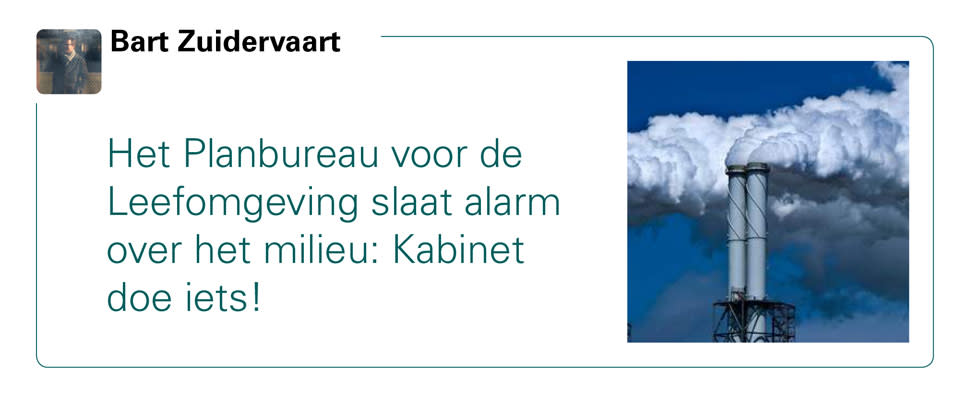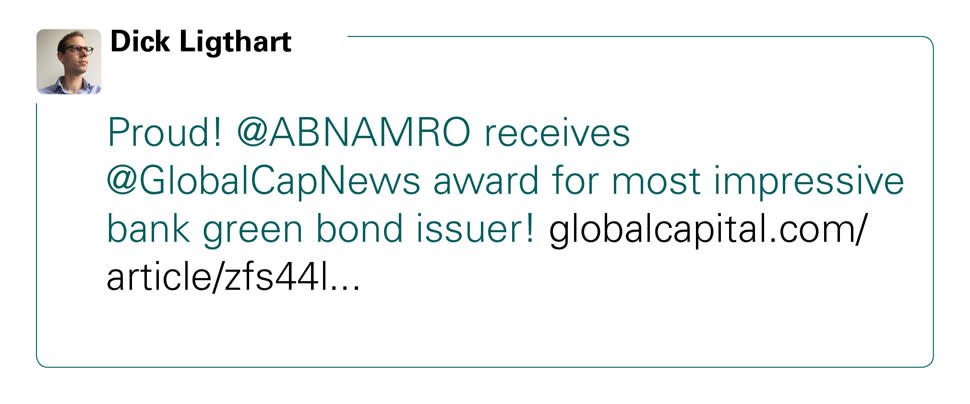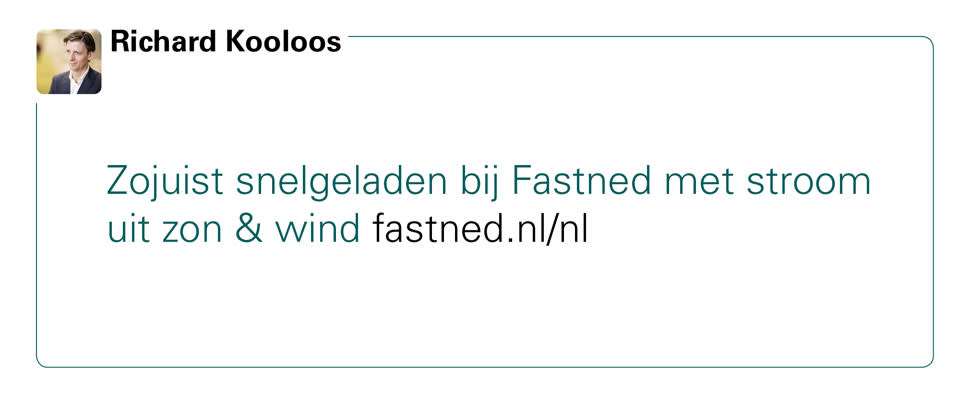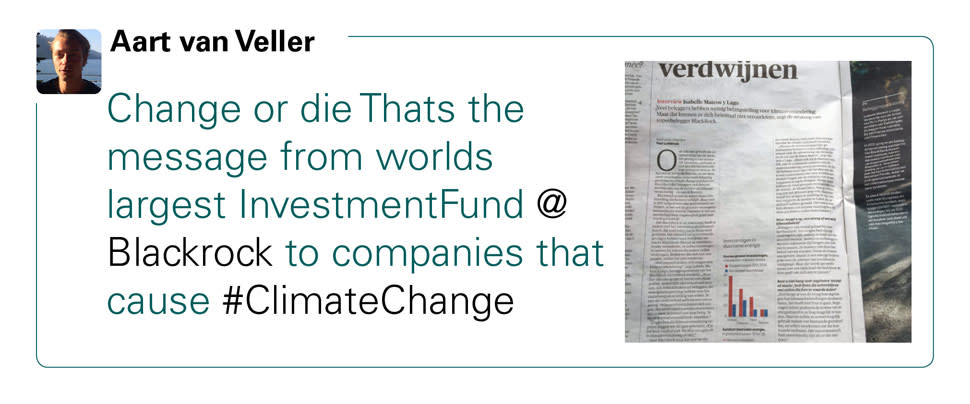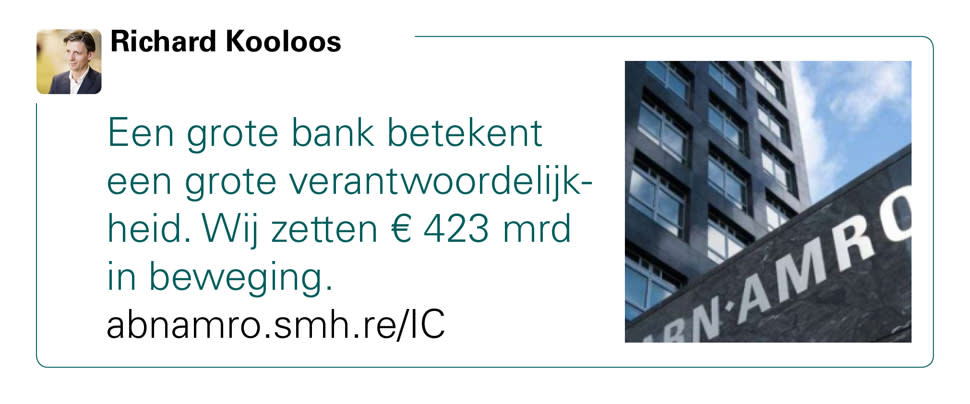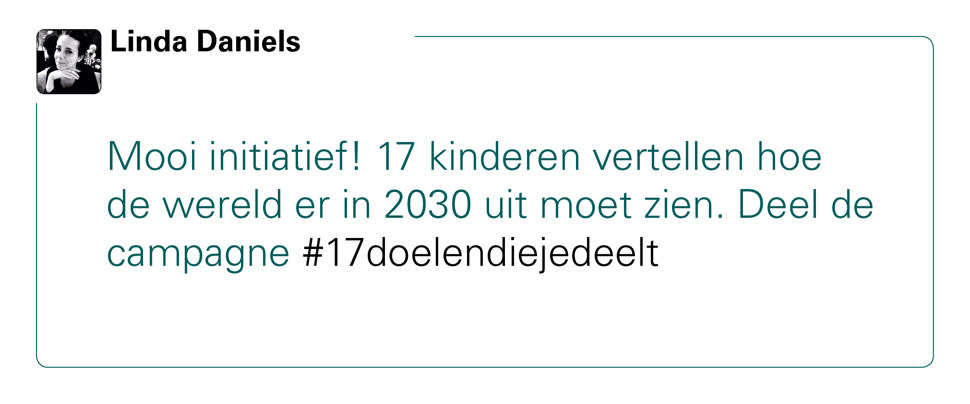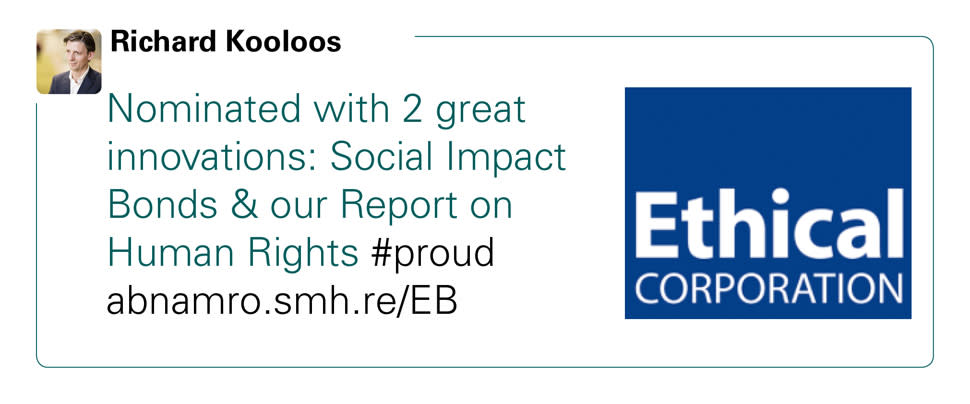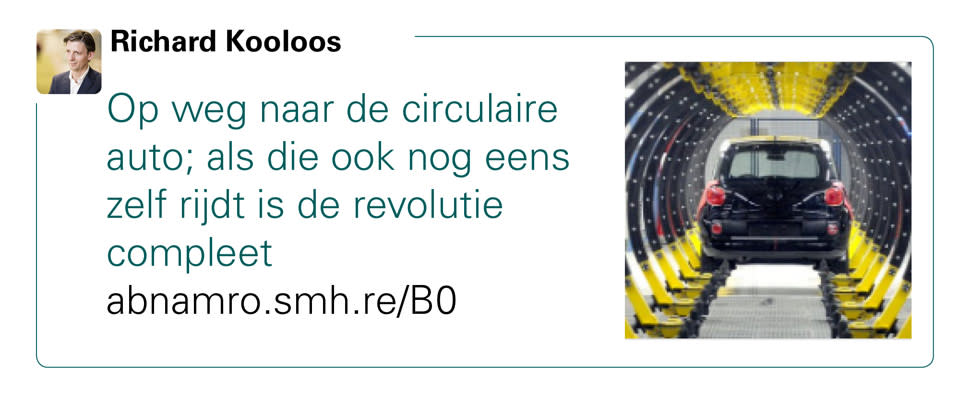Richard (re)tweets: 'Ignoring sustainability leads to bad choices'


Head of Sustainable Banking at ABN AMRO Richard Kooloos ranks his favourite tweets and retweets once every three months. This quarter’s picks: the circular car, the energy transition and what children think the world should look like in 2030.
Richard Kooloos, Head of Sustainable Banking at ABN AMRO and registered tweeter, pressed the tweet button almost 3,000 times in just under 2,000 days. He shares what he thinks, does and sees in the world of sustainability. This is his selection of tweets from the past quarter.
'From Blackrock to De Nederlandsche Bank, more and more institutions are sounding the alarm. The environment is in trouble. That group now includes the Netherlands Environmental Assessment Agency, whose warning is a real wake-up call. It’s not about vision or belief any more – it’s about the fact that an energy transition needs to happen, and it needs to start happening now. That’s why ABN AMRO chose to focus on the energy transition during its Prinsjesdag Seminar.'
'According to the ABN AMRO Prinsjesdag Report "" (From Natural Gas to Sunlight), the Netherlands will have to make hard choices in the coming years to meet the mandatory climate objectives in order to be CO2-neutral by 2050. Obviously, there are still questions. But now is the time to start the energy transition. As a bank, we’ve already taken up the gauntlet with the recent launch of our energy conservation initiative in the built environment, for example.'
Green bond certification
'News site Global Capital announced the winners of its Sustainable and Responsible Capital Market Awards on 6 September. ABN AMRO won the Most Impressive Green Bank/SRI Bond Issuer category. A green bond is one which allows investors to back sustainable projects. With our , we help institutional investors looking to invest their assets sustainably. The very high standard we apply has earned us the Climate Bond Certification Mark. Of course, it’s nice to be recognised, but more important than the award is that the certification mark raises the bar. After all, anyone can call a bond “green” to greenwash their image. But a hallmark of quality like this gives investors real confidence.'
'I’m a firm believer in practising what I preach. So I drive an electric car, and tweeted right after a super-fast charge. The growing network of fast-charging stations across the country proves that the electric car is entering its next phase of maturity. There’s less and less fear about driving long distances now. I’ve been driving an electric car for the last four years. Two weeks after buying my first one, I ended up stranded on the side of the road. A software bug had resulted in the car miscalculating the distance to my destination, and there was just no way I was going to make it to the next charging station. I made it back home in a tow truck. Electric cars were a novelty back then, but now they’re becoming a normal part of everyday life.'
'Larry Fink, CEO of Blackrock, has warned Fortune 500 companies: if you fail to include sustainability risk in your business management strategy, you’re going to make bad choices, and we won’t invest in you any more. Hearing this message from the CEO of the world’s largest asset manager, and not from an environmental activist, makes a big difference. It shows once again that companies which don’t take sustainability seriously will miss the boat. After all, there’s a reason why regulators ask financial institutions to give due weight to sustainability risks in their planning and decision making.'
Insight into sustainability
'ABN AMRO invests and lends to the tune of €423 billion. The bank has an influence on where that money goes, and by asking questions, holding discussions, conducting analyses and providing insight, we can help people make the right choices. Just raising awareness about the sustainability of investments helps, so we’re going to be even more transparent. Obviously, we operate in a commercial arena, so it’s one step at a time. Niche players may take a more radical stance on sustainability, but they don’t have nearly the financial clout we do.'
'A campaign called "17 doelen die je deelt" (17 goals you share) kicked off at Amsterdam’s Westergastheater on 8 September. The campaign consists of a series of seventeen video portraits featuring children – tomorrow’s leaders – sharing their vision of the world in 2030. The campaign is in support of the Global Goals for Sustainable Development which the UN member states drafted in 2015 to ensure that the world will be fairer, healthier and more sustainable by 2030. Up to now, the objectives have been rather technical and complex. But since the campaign, they’re now accessible to a much broader group. After all, if a kid can explain it, it must be child’s play, right? The bank is teaming up with a number of other financial players to see how we can help meet these goals through our clients. We’ll be presenting a report on the initiative to Lilianne Ploumen, the Dutch Minister for Foreign Trade and Development Cooperation, in December.'
'ABN AMRO was nominated twice for the Responsible Business Awards 2016 – first for the Social Impact Bonds, five out of seven of which we helped set up. The second nomination was for the report on ABN AMRO’s efforts in the area of human rights. ABN AMRO is actually the very first financial institution in the world to apply the United Nations’ Guiding Principles Reporting Framework to its reporting on human rights. Obviously, we do a lot more than that, too, but we’re not the only bank in the other areas. In social entrepreneurship and human rights, though, we’re truly head and shoulders above the rest. And it’s nice to be recognised as a trailblazer here.'
'Cars will continue to be used more and more efficiently. In this sense, Uber was only the first step. Soon we’ll all be riding in driverless cars taking us from point A to point B. That means fewer parking spaces and fewer car parks. Owning a car won’t even be necessary any more, since we’ll be buying transport, rather than the vehicle itself. Daimler Benz is already doing this through its car2go subsidiary. This development calls for a circular car. Privately owned cars in Europe currently have an average lifespan of 9.7 years, but are parked in car parks 95 per cent of the time. Car sharing means that cars can be used 34 per cent of the time. But heavier use will shorten the vehicles’ lifespan.'
'My feeling is that driverless modes of transport will be a reality sooner than we think. It’s relatively easy for a car to travel unassisted on the motorway. The last mile, manoeuvring through the city centre, is more complex. But just how important is that last mile? Driverless cars can handle longer journeys, say from Groningen to Amsterdam, and the passenger can take the wheel before reaching his or her final destination. This isn’t science fiction any more.'
